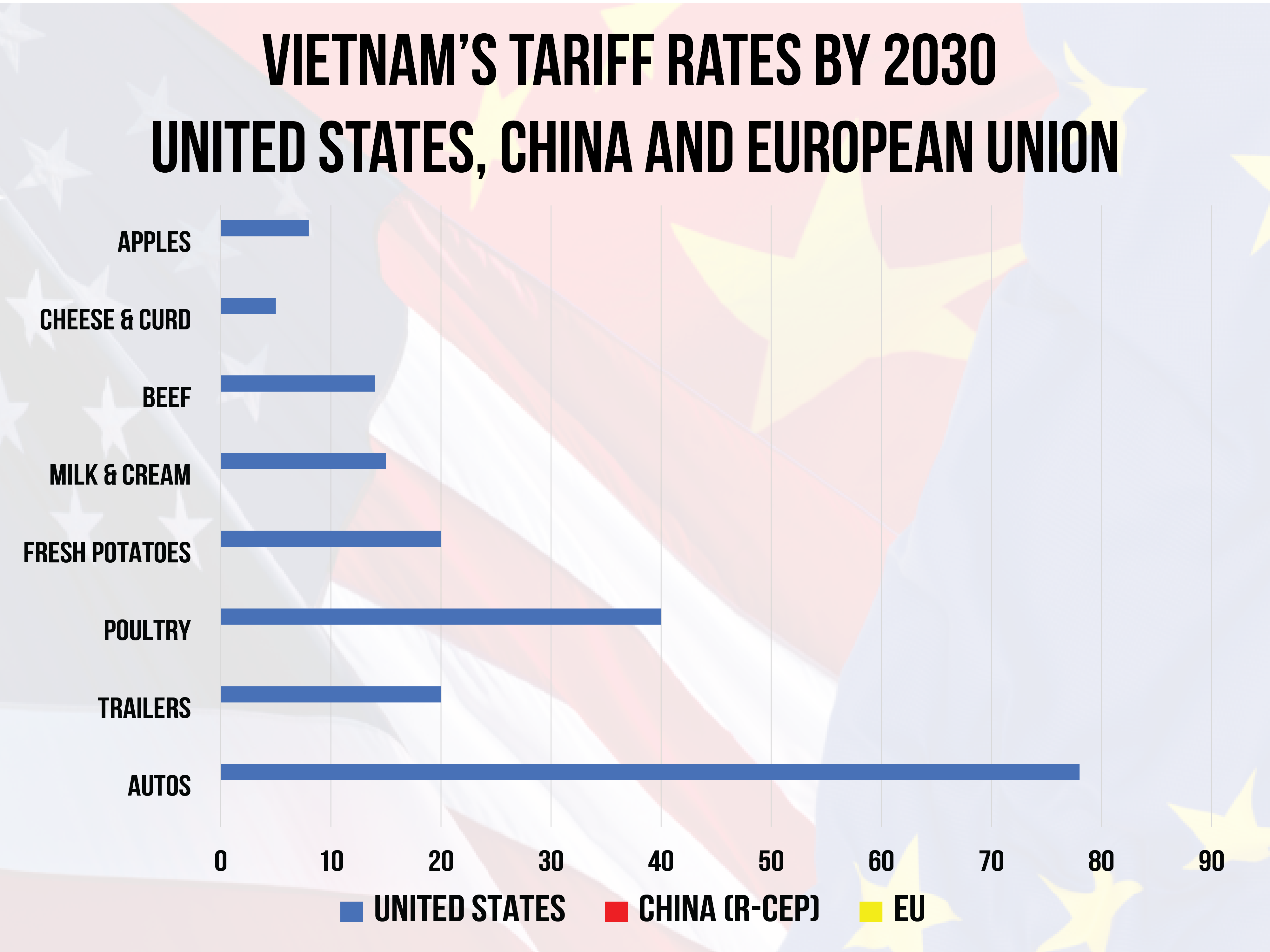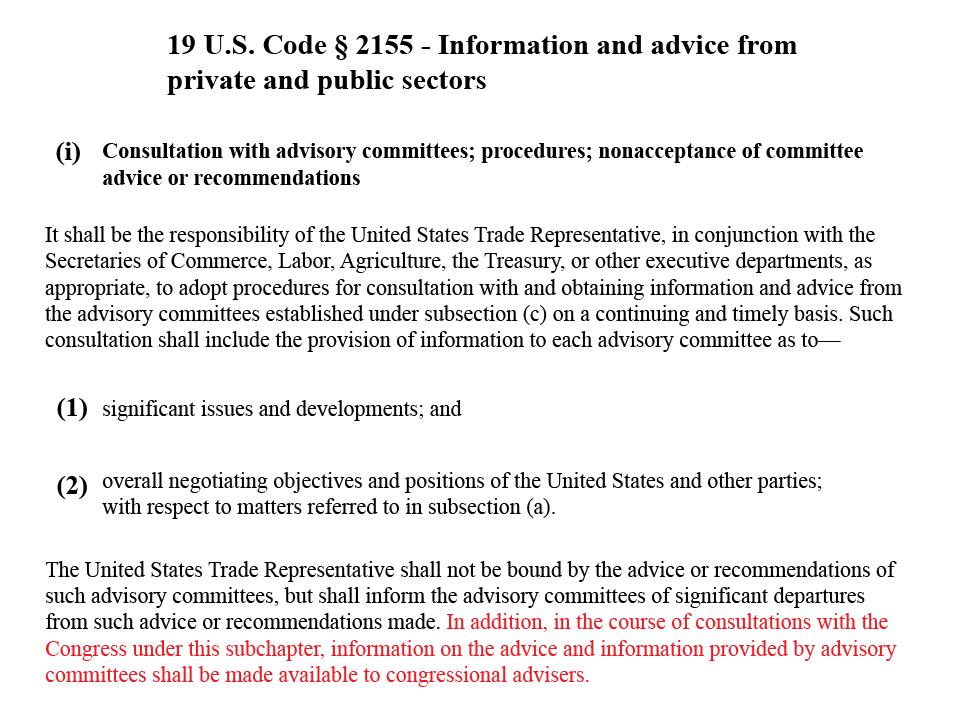Crapo Statement at Hearing on President’s Trade Agenda
Washington, D.C.--U.S. Senator Mike Crapo (R-Idaho), Ranking Member of the U.S. Senate Finance Committee, delivered the following remarks at a hearing on the President’s 2023 trade agenda with United States Trade Representative Katherine Tai.
As prepared for delivery:
“Thank you, Mr. Chairman. Welcome, Ambassador Tai.
“Members of this Committee have very thoughtful ideas to advance the trade interests of the American people. For example, just yesterday, Senator Young was recognized by the National Foreign Trade Council for his leadership on digital trade.
“Critically, and I know this from personal experience, every Senator on the Committee wants to work with you, Ambassador—on a bipartisan basis—to execute a successful trade policy.
“The challenge we face is how this Administration approaches U.S. trade policy, both in terms of substance and process. Substantively, the President’s trade agenda emphasizes ‘the groundbreaking domestic investments enacted through the President’s leadership.’
“Respectfully, however, an American trade policy cannot rest on massive spending on subsidies. That approach borrows more from China’s traditions than ours.
“American trade policy unleashes our people’s talent and productivity by removing foreign barriers through tough negotiations and enforcement. The potential of the American people is staggering; what the Administration proposes as a trade negotiations and enforcement agenda is strikingly limited.
“A few examples are indicative:
“First—American ranchers and farmers produce the world’s best and safest food, and exported $196 billion in 2022.
“They can accomplish even more if we eliminate the high tariffs and unscientific restrictions posing as safety measures.
“The only tariff reduction flagged in the President’s agenda is that India will reduce its tariff on pecans to a still overly-restrictive 30 percent.
“Instead of aggressively challenging non-science based safety measures, the Administration has only this month initiated ‘technical consultations’ on Mexico’s biotech restrictions.
“Second—American workers are highly skilled at manufacturing and have drawn nearly $1.9 trillion in foreign investment, including in major auto manufacturing facilities in Spartanburg, South Carolina; Smyrna, Tennessee; and Marysville, Ohio to name a few.
“That kind of investment coupled with American workers’ talent should make us an export powerhouse, but unreasonable product specification standards continue to keep our manufacturing out of many markets. Yet, the Administration chooses not to pursue a ‘technical barriers to trade’ chapter, or TBT, in its proposed Indo-Pacific Economic Framework (IPEF).
“In contrast, the United States-Mexico-Canada Agreement (USMCA) had a robust TBT chapter, and explicit commitments that Mexico would continue to accept U.S. cars built to U.S. federal safety standards.
“Third—Our innovators and artists develop life-saving products and films and music that spread American values. Copyright industries alone generate $1.8 trillion in economic output.
“Yet, instead of working to strengthen U.S. intellectual property rules, the Administration actually waived U.S. intellectual property rights for COVID vaccines under the World Trade Organization (WTO) Trade-Related Aspects of Intellectual Property Rights (TRIPS) Agreement, and is even now considering expanding that waiver to diagnostic and therapeutic products.
“And, while we all agree that one of China’s most pernicious mercantilist policies is the theft of American intellectual property—the Administration does not pursue any IP rules in IPEF—or elsewhere—that could help ensure China does not benefit from its theft through sales in other countries.
“Fourth—U.S. digital firms are a major contributor to U.S. economic growth, with the digital economy now comprising 10 percent of U.S. GDP.
“The Administration has yet to press the European Union, through the Trade and Technology Council, on measures that unreasonably target the U.S. digital economy, even though it readily agreed to discuss the EU’s concerns with the Inflation Reduction Act at the very same forum.
“We can do better. We must do better.
“One last example: behind me is a chart comparing the respective tariff rates that American, European and Chinese products face entering Vietnam, a country of nearly 100 million.

“The reason there is no red or yellow ink to reflect the tariffs that Chinese and European producers face is not because the Senate print shop ran out of ink.
“China and the EU have concluded trade agreements to reduce their tariffs eventually down to zero, while signature American products, like automobiles, apples, poultry, potatoes, milk, and others, will continue to face high tariffs.
“While some of the tariff reductions in the EU and China’s deals will take time to phase in fully, we lose ground every day we remain on the sidelines of real trade negotiations. Given this dynamic, the Administration need to reconsider its decision not to pursue market access in IPEF or other trade arrangements.
“Unfortunately, the ability to take on these substantive challenges is compounded by one, very fundamental problem: the Administration’s insufficient consultation with Congress. We saw this problem with the negotiations for the TRIPS waiver, and they still continue.
“In the case of IPEF, the Administration refuses to share the views of the same congressionally established advisory committees that assist Congress in determining whether a proposed trade agreement will assist Americans. The text of the relevant statute is behind me and it is crystal clear that such information must be shared with designated Members of Congress.

“The Administration also refuses to share attributions of which countries support or oppose particular provisions of IPEF, even though the Trump Administration provided such information during USMCA consideration. This attempt to bypass Congress is unnecessary. Our trade policy is strongest when the Administration and Congress work together.
“The Administration should accordingly partner with Congress and the American people—not try to cut us out—because under the Constitution, it cannot.”
Next Article Previous Article
